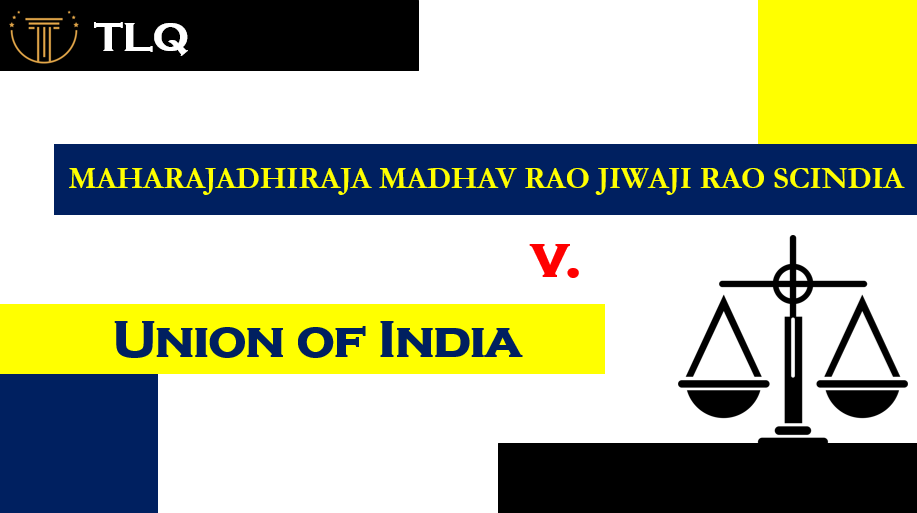Published On: 3rd May 2025
Authored By: Gaurav Raj
Radha Govind University
Date of Judgement: 29th July, 2019
APPELLANT: R.K. ANAND
RESPONDENT: REGISTRAR, DELHI HIGH COURT
BENCH: AFTAB ALAM, G.S. SINGHVI, B.N. AGARWAL
CITATION: CRIMINAL APPEAL NO. 1393 OF 2008
Facts of The Case.
On January 10, 1999, a hit-and-run accident took place in Delhi. A speeding car recklessly drove through a police checkpoint, killing six people, including three policemen. This incident, widely known as the BMW case, went through a lengthy trial lasting eight years, with little progress from the prosecution’s side. Sunil Kulkarni, who said he was an eyewitness, was removed as a prosecution witness. Later, Kulkarni conducted a sting operation and contacted lawyer R.K. Anand to arrange meetings for the accused, which led to both being charged with criminal contempt of court. The sting was broadcast by NDTV, prompting Anand to send the channel a legal notice demanding compensation. Eventually, the Delhi High Court convicted Kulkarni and Anand for contempt and sentenced them. Kulkarni was also cross-examined by I.U. Khan, representing the prosecution. The case raised legal issues about the use of recorded conversations as evidence and the High Court’s authority to regulate lawyers’ conduct in court.
Issues Raised in The Case
The issues that were raised before the Hon’ble Supreme Court are as follows:
- Whether the use of sting recordings by the High Court was in violation of the conditions laid down by the Supreme Court.
- Whether the direction debarring a lawyer from appearing before the court or in courts subordinate to it is beyond the jurisdiction of the High Court.
- Whether NDTV had immunity under sub-section (3) of section 3 of the Contempt of Courts Act for the telecast of the sting operation.
Submissions on behalf of RK Anand:
Mr. Altaf Ahmed, senior counsel for R.K. Anand, argued that the Delhi High Court convicted the appellant under the Contempt of Courts Act based on electronically recorded evidence without properly verifying its authenticity. The court assumed the sting recordings were accurate and used them to declare the appellant guilty of criminal contempt. However, the reliability of these recordings was never fully proven, leaving their authenticity questionable.
Mr. Ahmed further stated that the judgment under appeal was flawed because its foundation was not solid or free from doubt. He also argued that the procedure adopted by the High Court was unfair and denied the appellant a fair trial. Moreover, the court reached its decision without properly considering the appellant’s defences, which was another reason to overturn the judgment.
Nature of Contempt Proceeding:
Mr. Ahmed argued that the High Court, under the Contempt of Courts Act, was exercising extraordinary powers. He explained that such proceedings are quasi-criminal in nature and require the same standard of proof as a criminal trial to establish someone’s guilt for criminal contempt. To support this point, he referred to two Supreme Court judgments: Mritunjoy Das v. Sayed Hasibur Rahman (2001) and Chotu Ram v. Urvashi Gulati & Ors. (2001). In both cases, the Court emphasized the principle that “the burden of proof lies on the one who asserts,” which applies to contempt proceedings as well. These judgments also cited a passage from Lord Denning’s decision in Re Bramblevale Ltd. about the strict standard of evidence needed in such cases.
The counsel for the appellant, R.K. Anand, highlighted that at the start of the suo moto proceedings, the High Court did not take the microchips used in the sting operations into its custody. Instead, it instructed NDTV to preserve the original materials, including the CDs and videos, and to submit copies and transcripts made from those microchips to the Court. This meant the microchips remained with NDTV, giving them ample time and opportunity to alter or manipulate the recordings, assuming such recordings even existed initially.
R.K. Anand had filed a petition requesting the Court to direct NDTV to submit the original microchips and provide him with copies made directly in court from those microchips. However, this petition was ignored and ultimately dismissed in the final judgment. Another petition seeking to send the microchips for forensic examination faced the same outcome.
Mr. Ahmed argued that the High Court’s procedure was flawed as the number of microchips used in the sting operations remained inconsistent, with references to three, four, and five chips at different stages. He emphasized that the recordings, created by Kulkarni, were neither authenticated nor tested through cross-examination. Poonam Agarwal’s affidavit failed to resolve this issue, as she only facilitated the recordings but did not create them. Ahmed concluded that the High Court’s reliance on unauthenticated evidence rendered its findings baseless and deserving of reversal.
Arguments presented in the court by the Parties:
- K. Anand argued that NDTV should be held in contempt of court for broadcasting its program on May 30, 2007. He questioned the meaning of contempt jurisdiction and emphasized the burden of proof required in a criminal contempt case. He also challenged the reliability and admissibility of the sting recordings, calling them untrustworthy.
- He further contended that, as a quasi-criminal proceeding under the Contempt of Courts Act, the case required the same high standard of evidence as a criminal trial for a conviction. Mr. Altaf Ahmed, Anand’s counsel, argued that the conviction was based on electronic evidence that lacked proper validation and authenticity.
- Anand also pointed out that Sunil Kulkarni, the person who created the electronic materials, was never brought before the court to formally verify the recordings or be cross-examined by the accused. The High Court’s decision, he argued, relied on unverified and untested materials.
- Finally, Anand claimed that he was not given prior notice of the possibility of being barred from court proceedings or appearing in court, as required under Section 12 of the Contempt of Courts Act, 1971. The court later acknowledged this and issued a notice asking him to explain why he should not face a prolonged bar from court hearings due to contempt.
- U Khan objected in the Court that the conduct of the NDTV was indifferent and casual. He also argued that when the High Court issued notice, it did not have one of the clips of the sting recordings, and the material that was given to the defense was not exactly the same as the High Court.
Summary of the Judgement
The Delhi High Court initially convicted R.K. Anand of attempting to influence a court witness, a grave offense that undermines judicial integrity. Under Section 2(c)(ii) and (iii) of the Contempt of Courts Act, 1971, he was barred from appearing before the Delhi High Court and subordinate courts for four months and fined Rs. 2,000. The court also recommended revoking his designation as a Senior Advocate due to the severity of his misconduct.
Anand appealed this decision to the Supreme Court under Section 19(1) of the Act. While the Supreme Court upheld the conviction, it found the punishment “wholly inadequate.” A three-judge bench, recognizing the seriousness of his actions, issued a notice considering a stricter penalty.
In response, Anand submitted a show-cause petition, apologizing and offering alternative forms of atonement. He proposed making a substantial financial contribution to the Bar Council of India for educational infrastructure, temporarily halting his legal practice, and providing free legal aid to the underprivileged.
Taking into account Anand’s age, family health issues, the conclusion of the related criminal case, and the broader societal benefits of his proposals, the Supreme Court accepted these alternative sanctions. It opted not to impose imprisonment, instead endorsing Anand’s contributions to legal education and access to justice as a constructive resolution to his contempt case.
Analysis of the Case
Precedents Cited
In its judgment, the Supreme Court referenced precedents that inform the proportionality and appropriateness of contempt sanctions. Notably, the court acknowledged the reasoning in Salve vs. Land and Subramaniam v. State, where the judiciary has emphasized the necessity of balancing the severity of sanctions with the individual circumstances of the contemnor. These precedents underscore the principle that while maintaining the sanctity of the court is paramount, sanctions must not be so draconian as to be unjust or counterproductive.
Legal Reasoning
The Supreme Court took a thoughtful approach to determining the appropriate sanctions for contempt, avoiding a uniform or rigid application of punishment. The court acknowledged that while imprisonment is a common penalty for criminal contempt, it is not always the most just or beneficial outcome. In R.K. Anand’s case, the court considered several key factors before deciding on the punishment:
- Age and Health: At 69 years old, with his wife suffering from a debilitating illness, Anand’s health and personal circumstances merited compassionate consideration.
- Length and Nature of Proceedings: The protracted nature of the contempt proceedings had already imposed significant strain on Anand, suggesting that further punitive measures could be excessively harsh.
- Finality of Underlying Case: The criminal trial from which the contempt arose had reached finality, reducing the necessity for stringent punitive actions.
- Remorse and Remediation: Anand’s submission of apologies and his willingness to undertake constructive measures indicated genuine remorse and a commitment to rectifying his misconduct.
The Supreme Court, considering all the factors, chose sanctions that would maintain the judiciary’s authority while also benefiting society. By agreeing with Anand’s suggestions, the court established a precedent for more adaptable and restorative methods of handling contempt, focusing on rehabilitation instead of punishment in specific cases.
Conclusion
The ruling in R.K. Anand v. Registrar, Delhi High Court, marks a significant shift in how contempt of court sanctions are understood and applied in India. The Supreme Court’s decision to allow alternative forms of punishment reflects a forward-thinking approach, balancing the need to uphold judicial authority with a sense of compassion and societal benefit. By taking Anand’s personal situation into account and recognizing his efforts to make amends, the court showcased a judicial system that is both firm and fair, ensuring that penalties are just without being excessively harsh.
This case highlights the importance of proportionality in legal penalties and opens the door for more rehabilitative and constructive responses to misconduct. It not only strengthens the enforcement of contempt laws but also reinforces the legal profession’s dedication to integrity, accountability, and public service. Ultimately, the judgment sets a valuable precedent for future cases, promoting a judiciary that is both strong and compassionate.
References
Desk, C.E. (2024) R.K. Anand v. Registrar, Delhi High Court: Refining contempt of court sanctions with alternative punishments, https://www.casemine.com. Available at: https://www.casemine.com/commentary/in/r.k-anand-v.-registrar,-delhi-high-court:-refining-contempt-of-court-sanctions-with-alternative-punishments/view#:~:text=The%20case%20of%20R.K%20Anand,witnesses%20during%20a%20criminal%20trial. (Accessed: 24 January 2025).
Dullbonline (2020) R.K. Anand v. registrar, Delhi High Court (2009) 8 SCC 106, One Stop destination for DU LLB students. Available at: https://dullbonline.wordpress.com/2017/07/22/r-k-anand-v-registrar-delhi-high-court-2009-8-scc-106-new/ (Accessed: 25 January 2025).
Alam, A. (2009) R.K. Anand vs Registrar, Delhi High Court on 29 July, 2009. Available at: https://indiankanoon.org/doc/58440/ (Accessed: 23 January 2025).


